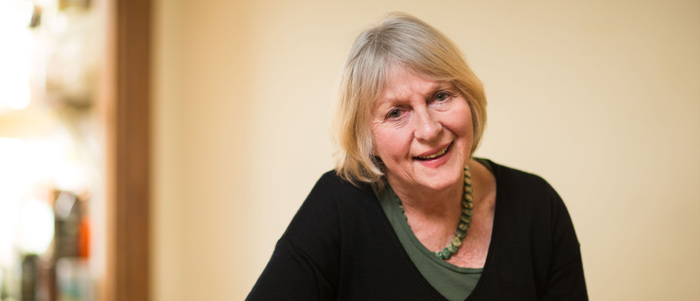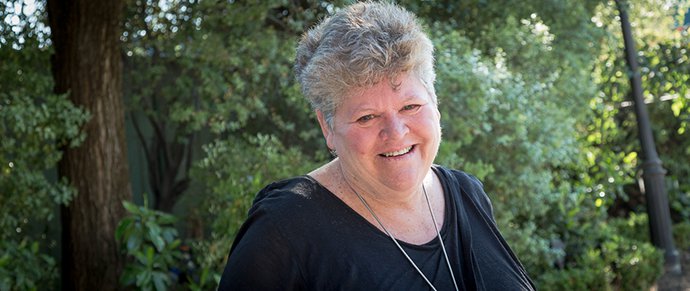Telling your story
Whether you are a person with experience of a mental health issue and/or families and carers of someone with a mental health issue, you may at some point want to share your experiences/recovery journey with others.
Consider before sharing
Letting people know of your experiences can be rewarding, as well as contribute to destigmatize societal stigma in mental health.
However, there are major factors you should consider before sharing your story:
Letting people know of your experiences can be rewarding, as well as contribute to destigmatise societal stigma in mental health However, there are major factors you should consider before sharing your story.
1. Purpose
Consider why you want to share your personal story
Is it to inform and educate others? Is it to share what has been helpful to you?
If you have been asked to share your personal story consider how it will be used and for what purpose. You always have a choice and can say no.
2. Exposure
It is better to share your personal stories first with people you trust before going public.
You will need to consider the exposure that the story will bring to you. Publishing the story online may cause you to be opened to judgements and feel overwhelmed. Once your story is out in the public domain then there is no going back.
3. Honesty
Share your story from your own view point. You are the expert (Suicide Prevention Australia, 2017). Be yourself.
4. Others
Will your story include other people? Do you need to seek their permission prior to telling your story? Will publishing the story affect them?
5. Emotions
Telling your story may be an emotional experience as you revisit past experiences. It is important to ensure you have a support system in place to deal with any issues which may arise during and after the storytelling process.
You can ask for any material that is in the public domain by WayAhead to be removed e.g. a story on the website can be removed but participation in an online video is more difficult.
6. Boundaries
It is always best to think about your boundaries prior to telling your story. There may be aspects of your story that you wish to keep private. You do not have to tell all of your story and you don’t have to answer questions you do not want to answer.
7. Name
Do you want to use your full name, first name only or a make-up name ?
8. Anonymous
Do you want to remain anonymous? Do you want to use an alias?
9. Audience
Keep in mind who you are sharing the story with. Be mindful that sharing your story with the media may sometimes cause your story to be sensationalised, askew and/or your personal life to be intruded.
You do not know who will be your audience and how they are feeling so care is needed when discussing suicide
In order to counter stigma and discrimination toward people who experience mental health issues it is important not to perpetuate myths that people may have.
Stories of both challenge and positivity, and examples of your achievements and aspirations that go beyond your experience of mental illness are helpful.
10. Content
Consider what do you want to tell in your story. Things you may consider:
- Successful instances in challenging times
- The types of support system which has helped you
- Your unique view and experiences
- Any challenges which you and/or your loved ones may have faced and how they were overcome
- Avoid language of shame or guilt / language which may perpetuate stigma and stereotypes towards mental health
- Your first experience of distress
- Your recovery journey to wellbeing
- What is your motivation for sharing your story?
- Where are you now
11. Where do you want to tell your story?
Depending on your purpose, think about finding a comfortable, non-distracting time and place to tell your story.
12. How do you want to tell your story?
Do you want to tell your story via speech to the public, interview, written stories, poems, painting, video, or song?
Guidelines for telling your story to Wayahead
You can share with us your story either written or speech/video/audio recording. Please let us know which format you prefer.
We could do an interview over the phone. And one of our writers will write up your article.
You could also write your own story and submit it to us. We will credit it to you, either under your own name or anonymously.
We don’t gloss over difficulties and exhaustion in living with mental illness. But, we really support and emphasise messages of hope and recovery.
We may make some editing to the story (for example: grammar check, cutting the video to appropriate length).
We will show you the final product and give you all the time you need to approve it.
Please let us know if you want us to make any changes. And feel free to ask questions!
Only once you are happy with the final product, we will publish the story on our public domain.
We will always inform you where and how your story will be used: via website, social media, email newsletter, etc. Stories told to WayAhead are also shared to our Facebook, Twitter and mailing list audiences. We currently have about 6000 people who have liked us on Facebook and similarly on our mailing list. So, we are very happy if you would like to use a pseudonym, alias or stay anonymous.
We will need to obtain a signed consent from you.
If you would like to discuss anything that has arisen for you following the sharing of your personal story please do not hesitate to contact us.
We will let you know when your story has been shared by us. We will also check in with you after your story has been shared.
Yes, this would be possible if the story was only published on our website. However, if the story was told as part of your participation in an online video, for example, this might be more difficult.
Note: Before using your personal story, WayAhead will inform you if it is possible to remove it at a later date.
Finally, thank you for considering to share your personal story. We know from research that the sharing of personal stories is the most effective way to reduce stigma and discrimination toward people who experience mental health issues. Your story will be making a difference by reminding those who are going through challenging times there is light and hope.
Useful resources and contacts
Emergency call
000
Lifeline (24 hours service)
13 11 14
Suicide Call Back
1300 659 467
Kids Helpline
1800 55 1800
Mensline Australia
1300 78 99 78
Carer Australia
1800 242 636
SANE Australia
1800 187 263
Beyond Blue
1300 22 4636
Read some previous personal stories here
Stephanie’s beautiful eyes and easy smile speak of a carefree young woman making strong strides in the world. But, it wasn’t always this way. What those same eyes mask is a past challenged by mental illness: she was diagnosed with bulimia at 18, had her first suicide [...]
Jo is a resilient woman. As a carer to her sister and nephew, both of whom lived with schizophrenia, and then to her son, who developed clinical depression and bipolar disorder, she has experienced a road full of personal heartache and despair, and while there have been [...]
Australians from CALD (culturally and linguistically diverse) backgrounds are less likely to seek help for mental health issues due to a range of factors, such as language barriers, not being familiar with Australia’s health system, or simply just not knowing what warning signs to look out for. [...]
One woman’s journey for change in mental health awareness Jenny Smith is a consumer advisor for her local health district and a mental health educator, who shares her experience with others. She goes to regular workshops and carer support groups and generally lives a happy, healthy and [...]
One woman’s remarkable story of survival. Jean Roxon talks immigration; looking at one woman’s extraordinary story of escaping Cambodia in the 1970s, the impacts it had on her and her family’s mental health, and what it means to be Australian. Walking through Sydney recently, it has been [...]
The role of the peer support worker is becoming increasingly popular in the mental health care sector. Harry Easton speaks to Karen Purtle, who is using her past experiences to empower mental health consumers today. […]
Newsletter
Stay up to date
Sign up to our Mind Reader newsletter for monthly mental health news, information and updates.



